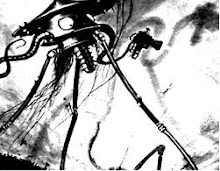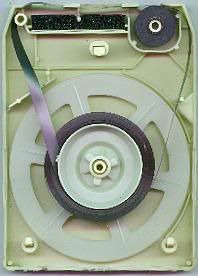DRM is PC Gaming's Ouroboros
I've been discussing DRM a lot lately, and I ran across this article on Penny Arcade by guest writer Brian Crecente of Kotaku. I think that Crecente makes a lot of relevant points, especially in this passage:
As long as there are creative works people will want to buy them, protect them and, yes, even steal them. Even this modern use of the word piracy dates back to the 1700s when Daniel Defoe agonized over hand-written, pirated copies of his poems sold on the streets. He called those erstwhile literary thieves "pirates" and "paragraph-men."I think it would be beneficial if we, as a society, had a discourse about what "intellectual property" actually means. What does it mean to "own ideas"? My previous post, "Who Owns Ideas" has a discussion about the role of ideas and expressions in a democracy, and I encourage everyone to listen to the radio program.
Imagine, though, an unsuspecting bibliophile returning home with their copy of The True-Born Englishman only to discover that once they’ve read it, the pages turn to ash. Or maybe they can read it and let a couple of friends borrow it, but that’s it. No more reads, thank you very much. What if they find that there is someone lurking outside their library window, watching them, making sure no one else catches a glance of page 32? Or, god forbid, they try to go and sell the book back?
No, copy protection in the 18th Century was a much simpler thing. There was no technology to obfuscate what a publisher was doing. No ghosts in the machine. No machines. But today, as the ways a game or creation can be stolen increases, so do the little lies, the hidden spies created by those creators.



No comments:
Post a Comment